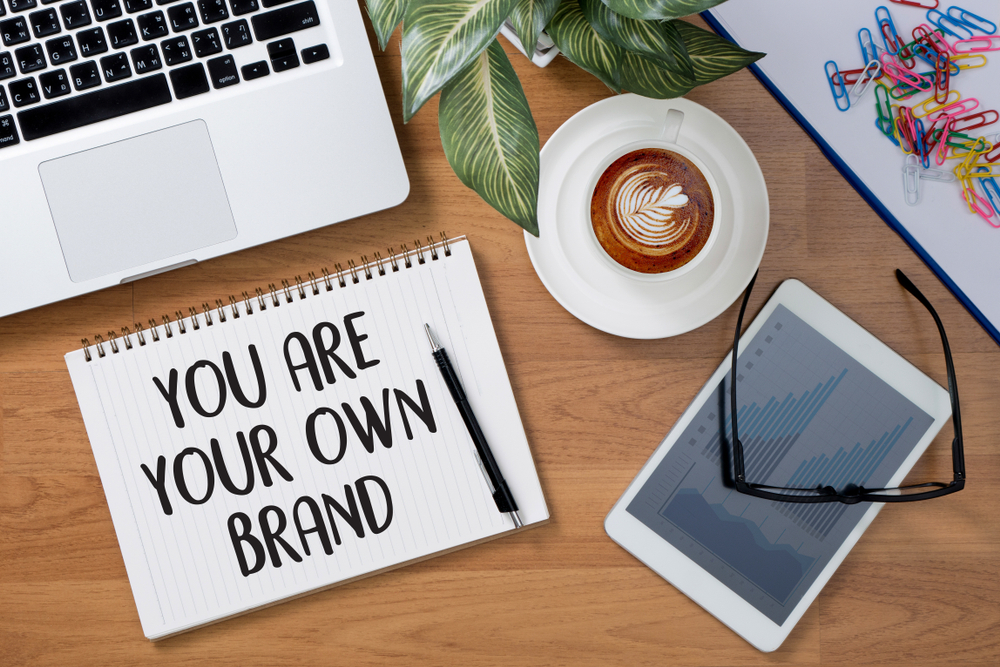In the current environment with competition for jobs at its highest for decades, identifying how to best advance your career might feel daunting, but at times like this I go back to the analogy of the bow needing to be pulled back to its most extreme tension before it can propel the arrow towards its target.
We all need to be ready for that force for change and now is the time to get ready and stand out.
These are interesting times because there will be numerous opportunities and possibilities for everyone in the future including you. You don’t have to go to university to learn human skills – you can do it every day on your way to work, in the coffee shop with your friends, at the supermarket, when having dinner with your family or Zooming with your customers – and it costs nothing except commitment and practice. If you start now you will be ahead of the curve.
What is a human brand?
People talk about personal brand and even write books about it, but I think we should talk about our human brand instead. A human brand is very different from corporate branding. Using Guinness as an example, we think of the product’s identity, its market positioning and its core message. When I talk about creating your human brand I mean understanding your core strengths, building on them, knowing what makes you stand out and telling your story to inspire the people around you. This includes how you’re perceived at work and in interviews for a promotion or a new job. It’s all very well having a human brand, but if people are not seeing or believing it, then you’re not standing out so what’s the point.
Make a start by trying the key exercises below to start to develop your human brand.
What is your mindset
Answer the following questions:-
- When you see or hear about someone else’s success, does it make you feel you’re not doing enough?
- If something’s difficult and outside your comfort zone, do you find yourself giving up when it gets tough?
- When you’re trying to be successful at something, do you try avoiding failure at all costs?
- Do you resist challenges if they make you feel uncomfortable? Why?
- Do you find critical feedback difficult to take and try to ignore it?
If you answered yes to any of the questions above, you have a fixed mindset in some parts of your life and you need to do some work on your growth mindset.
Fixed mindset: Your intelligence is fixed, and you can’t change it. Challenges are avoided, as failure equals lack of ability, so effort is seen as fruitless. Getting things wrong and receiving feedback is negative and damaging, because it shows you up as having limitations.
Growth mindset: Your intelligence can be developed, and challenges are welcomed because you believe it’s all about improvement. Effort is worthwhile to becoming a master of something. Making mistakes and getting feedback is therefore positive as it develops improvement and growth.
Ways to give your growth mindset a workout
- Say yes to opportunities to step outside of your comfort zone
- Ask questions – there is no such thing as a stupid question
- See challenges as growth opportunities
- Learn to love your mistakes
- Don’t hide from feedback, seek it out instead
- Reflect, reflect, reflect
Know yourself
- What are your key human strengths? For example, are you a great listener?
- Collect examples to support to these strengths and create a ‘bragging folder’ to keep them in so you’re ready for any opportunities.
What do you want people to say about you?
Your real human brand is the story people tell about you when you’re not in the room. To begin, you should consider how you want to show up at work. Answer the two questions below about your human skills (not the work skills you have).
How do I want people to speak of me at work or describe me to others? Write down at least seven adjectives. For example, curious, compassionate, approachable, conscientious, honest, open, inspiring.
What do I want to be known for? Write down three sentences. For example:
- A good listener who asks questions seeking to understand other people’s ideas and opinions without an agenda.
- A kind and compassionate person willing to help others.
Now you need to take responsibility and set goals to develop these skills and live them, this will bit by bit develop the story others tell about you.
Personal values
Underpinning all of this will be your personal values, beliefs and what you stand for. Understanding what these are will help you find your direction and keep you on track.
Answer the following questions:
- What do I stand for? My example: freedom, kindness and compassion, helping others.
- What are my strongest beliefs? My example: justice and everyone’s chance to be heard, equality for all.
- How do I define and describe myself? My example: creative, compassionate, vulnerable, mother and wife.
- What words do I want to live by? My example: openness, understanding, courage, curiosity, loyalty, honesty, fairness.
What’s your story?
Start creating your story. Some people call it an ‘elevator pitch’, but I personally believe a story is more human, write out what you would say to someone if they asked ‘Why you? How have you got there and what have you learnt.’ Your story needs to be short and sweet, authentic and easy to tell. Rehearse it so you are comfortable and can be yourself when you tell it, you never know when you need to be ready to tell it.
And finally
Once you are clearer on your human brand shout it from the roof tops, include it on your social media, live and breathe it in every meeting and keep working at it and the opportunities in our brave new world will open up to you!
 About the author
About the author
Debra Stevens is the author of Stand Out – 5 key skills to advance your career, published by Pearson Business. Debra has been a trainer, coach and speaker for over 30 years working with large companies globally including Coca Cola, Network Rail, Santander, Stena Line and Hovis, working with people to develop key soft skills to help them advance their careers, develop their businesses and enrich their lives.
If you are a job seeker or someone looking to boost their career, then WeAreTheCity has thousands of free career-related articles. From interview tips, CV advice to training and working from home, you can find all our career advice articles here.









